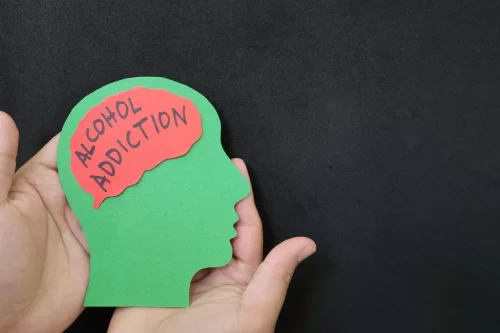
These nonclinical professionals have varied titles, including peer worker, recovery specialist, peer navigator, peer provider, peer recovery coach, peer support provider, peer specialist, recovery support navigator, recovery support specialist, wellness coach, or health navigator. Peer workers who have received certification or credentialing to provide PSS are known as certified peer specialists. Although this section focuses on describing substance abuse counseling CBT components that counselors can use to support individuals in recovery, some of these specific interventions are discussed elsewhere in this chapter. MDFT is designed to support change that is multifaceted, with individualized interventions to foster various competencies. Primarily used with adolescents, MDFT can be adapted for adults in recovery from problematic substance use and can support reducing problem behaviors.
Types of Substance Abuse Counselors
- Simply offering education about problematic substance use can improve the health of pregnant people and their babies.
- Exhibit 3.18 lists strategies for linking clients to peer and community support services.
- In recovery, the cognitive–behavioral model focuses on helping clients replace thinking patterns and risk behaviors that undermine recovery efforts with thinking and behavioral patterns that support and sustain recovery.
- PSS help individuals with substance use–related problems initiate and sustain recovery, regardless of their chosen recovery pathways.
- Counselors can reduce the risk of secondary trauma by monitoring their own mental health needs, seeking assistance from behavioral health service providers, and engaging in self-care activities.
- Xylazine, also called “tranq” or “tranq dope,” is a tranquilizer increasingly being added to other drugs, such as cocaine, heroin, and fentanyl, either to enhance the drug effects or increase street value by increasing their weight.
RCOs provide personal, social, environmental, and cultural resources to sustain remission and recovery over the long term.1376 These organizations engage in recovery-focused education and advocacy through organizing and mobilizing people in recovery and impacted family members and allies (i.e., the recovery community). RCOs may choose to become members of the Association of Recovery Community Organizations, a branch of Faces & Voices of Recovery. They may operate direct, peer-based recovery supports via outreach and/or services through recovery community centers (RCCs) or recovery cafés. Substance abuse counselors, also known as addiction counselors, are licensed professionals trained in psychology, human behavior, chemical dependency and therapeutic methods. These therapists help people with behavioral disorders (primarily substance use) by talking through the complexities and causes of their addiction. Substance abuse counselors will work one-on-one with clients to develop goals and strategies for pursuing sobriety — all in a compassionate and confidential environment.
- Additionally, medications are used to help people detoxify from drugs, although detoxification is not the same as treatment and is not sufficient to help a person recover.
- Counselors can also help clients structure their days to incorporate enjoyable activities and encourage healthy choices during a period when they would normally engage in problematic substance use623.
- Being familiar with substance abuse counselor requirements by state can help eliminate licensing issues later.
- Clients can engage in role-playing exercises to rehearse various interpersonal interactions that have occurred or might occur in day-to-day routines and address thoughts that contribute to emotions and behaviors.
- CBT, MI, and CM can be effectively combined to improve outcomes by addressing both extrinsic and intrinsic motivation underlying behavior change.
National Helpline
While no single treatment method is right for everyone, recovery is possible, and help is available for patients with SUDs. Outpatient treatment programs are the usual setting for drug and alcohol abuse treatment. Additionally, medications are used to help people detoxify from drugs, although detoxification is not the same as treatment and is not sufficient to help a person recover.
Assistant Secretary for Mental Health and Substance Use
Because recovery capital can change over time and no one universally accepted measure of it exists, including a recovery capital assessment as part of the overall assessment of clients with present or past problematic substance use can give counselors a better understanding of their recovery resources. Sleep disturbances are common among individuals who have problematic substance use. They should also refer clients to their primary care doctor to assess for any related medical issues that may be affecting the quality of their sleep, such as sleep apnea. The Recovery Village aims to improve the quality of life for people struggling with substance use or mental health disorder with fact-based content about the nature of behavioral health conditions, treatment options and their related outcomes.

Various approaches for treating problematic substance use and preventing recurrence feature mindfulness practices, including mindfulness-based relapse prevention (MBRP), mindfulness-based stress reduction (MBSR), acceptance and commitment therapy (ACT), and dialectical behavior therapy (DBT). (The next section, “Models of Mindfulness-Based Intervention,” discusses mindfulness-based approaches specific to substance use issues.) Different models may be appropriate for different audiences and/or behaviors, but they each work from a fundamental framework of what https://ecosoberhouse.com/ constitutes mindfulness. Motivational interviewing (MI) can be a critical tool in supporting the development of goals. As discussed in subsequent sections of this chapter, MI is an effective, evidence-based technique for helping clients identify their strengths and goals as well as barriers to progress on those goals that may be preventing change. The core principles of MI are to express empathy and elicit clients’ reasons for and commitment to addressing problematic substance use.771,772 Counselors must be trained in skills and strategies involved in MI.

Office of Behavioral Health Equity (OBHE)
- Additionally, counselors may need to connect clients who require more assistance with adult rehabilitative services or case management support.
- The Recovery Village aims to improve the quality of life for people struggling with substance use or mental health disorder with fact-based content about the nature of behavioral health conditions, treatment options and their related outcomes.
- A strengths-based approach is fundamental to recovery-oriented counseling, beginning with client intake and continuing throughout the duration of care.
- Helping clients determine how their core values may influence reasons for and against change.
- Counselors will need to be able to provide information to families about support groups.
Their treatment locator can help you find drug and alcohol treatment centers near you. Look for someone with a relevant degree, experience treating substance abuse, and up-to-date credentials. In this article, we can help you choose the right substance abuse counselor and provide information about what to expect during counseling.
Important Skills for Substance Abuse Counselors

Program Certification

